“Art consists of limitation. The most beautiful part of every picture is the frame.”
“Art, like morality, consists of drawing the line somewhere.”
G.K. Chesterton
Waiting at London Gatwick for my connecting flight to Basel, I look at the row of people across from me. There are ten; seven have their phones out, the other three are elderly, one of them is reading a book. In the row behind me there are eight; seven have a phone in their hand, the eighth is eating a wrap. The row across from them has eight people, seven are tapping a phone, the eighth is reading chapter five of a book in German. The pattern repeats, row after row, across the expanse of the lounge, restaurants, line-ups. There is no limit to the compulsive orgie of images, texts, and videos. It strikes me as intuitively destructive not to have limits. Ask any parent what happens to a child without limits. It is not pretty.
In April I wrote about the devastating impact the increasingly inhumane conditions bred by our digital existence are having on children. Along with the essay, I extended an invitation to join in community for a 30-day digital detox inspired by Cal Newport’s Digital Minimalism, a freeing step toward setting limits and becoming more human again and also one of the most basic steps in resisting the Machine. There was an enthusiastic uptake of this invitation by readers, and during the month of May we aimed to regain cognitive liberty, lead the way for our children, and reclaim our stolen focus. Several readers have documented their digital detox experiences on their own substacks1, and I have gathered readers’ responses to share some practical, informative, and inspiring insights into their experiences.
But as a society — as a collective and as individuals — we are addicts in the full-on, active addiction… I know addiction when I see it. I know addiction when I’m in it — even or especially if that addiction is collectively sanctioned and celebrated. Even or especially if that addiction is “normal.”
Like all participants I prepared for the digital detox and was ready to meet the challenge, although I did not really expect to experience much discomfort. I thought I was doing pretty well already. I was completely wrong. The first three days felt like a black fast.2 I was surprised to experience waves of prickling anxiety washing through me, and I do not even own a cell phone (this goes to show that digital addiction can evolve even simply around substack and e-mail, which is all I had been using since the start of Lent)! I learned to reinterpret those rushes or antsy feelings as indicators that I was doing something right; my body was clearly flushing an addictive substance from its system.
Drawing the Line
In committing to the 30-day digital detox, I encouraged participants to develop a “game plan”, that would help to specify usage rules. My own rules included using the computer for a slice of time before breakfast to check e-mail, read some substack articles, and respond to messages. Having this activity focused into a single sitting was extremely helpful and saved me from limitless distraction and loads of time otherwise frittered away. The rules that participants devised differed somewhat, but had large areas of overlap. Here is an overview of the actions that readers took to reduce digital device use:
Deleting social media: Facebook, Instagram, Snapchat, TikTok, Twitter, Pintrest, Reddit (Subsatck Notes, was referred to as “the elephant in the room”, since it is still social media and promotes similar scrolling behaviour)
Using the internet during one specific time during the day
Keeping phone on airplane mode
Setting phone on Do Not Disturb
Turning phone off
Placing phone in a specific spot in the home
Keeping phone out of sight and easy reach
Leaving phone in a different room while spending time with family
Leaving phone at home while running errands, out for walks, visiting cafes, or while on family outings
Making lists about what needed to be done on the computer, getting what was needed, and promptly getting back off
Not checking phone in the morning until doing many other things like housework and prayer
Limiting number of e-mail checks to three times a day (or less)
Ending computer use by 8:00 in the evening
Initial Experiences of Participants:
Mary Anne “The morning of May first I woke up feeling like I was on vacation, with a feeling of limitless potential — that I could do whatever I wanted!”
“Watching my online usage still feels like meditation to me. Set my focus. Mind drifting. Distractions happening. Then notice, and pull myself back. Wash rinse repeat.” “Attempting to extricate my self from omnipresent digital technology is a tall order. There is irony, hypocrisy, and frustration at every turn. I twitch like an addict. I compulsively reach for my wife’s phone even though I’ve intentionally left my own at home. I do okay in the morning, furiously cleaning but grow antsy as soon as I stop.” “The first and biggest benefit I’ve seen has come from deleting social media. Instagram was the main cause of frustration and stress for me…I could tell I was getting addicted, scrolling hours each day…Pintrest (and Instagram) show me all the great things that I don’t have and cause me not to realize the good things that I do have in my life.” “I do feel that these small changes I made have allowed me to be more present and really enjoy my children more. I can also tell that my base level of anxiety has lowered. I feel that when I am not using my phone as an escape I have more patience and can get back to being myself more quickly.” “I spent a week just working in silence and that was far better than the radio. I found myself remembering things I should be praying about. Things I should be more grateful for…I found that in the boredom and silence my imagination and creativity were jolted.”Reconnecting to Reality
The Digital Detox included suggestions that would help ground us more firmly in reality such as meeting with friends / family / neighbours for face-to-face conversations, walking, reading, creating beautiful things, cooking etc. Greatly limiting my computer use led to a lot more housework getting done (on the first day alone I cleaned the blinds and got through organizing the basement). I also worked more on our garden, helped my husband dig a new vegetable frame into our hilly backyard, was able to spend more focused time homeschooling, read more peacefully, and remembered that all of this used to be “normal”.
Here are some of the creations and experiences that readers shared:
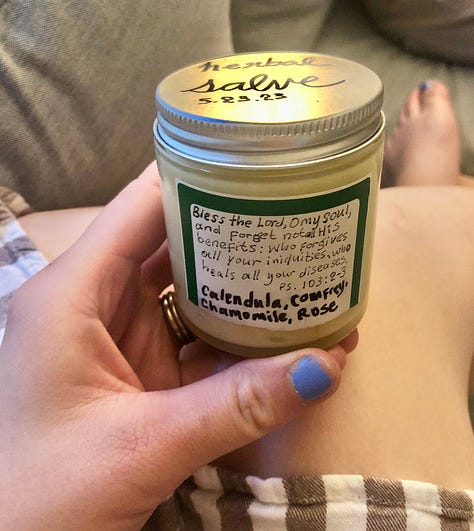
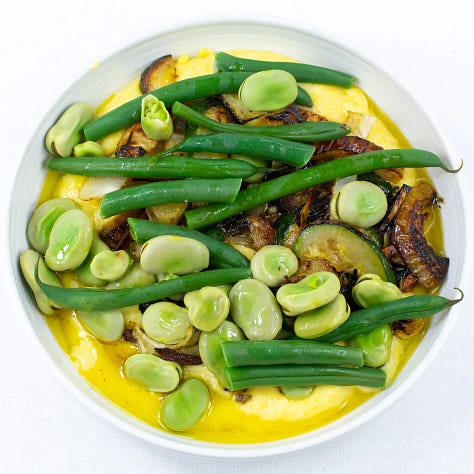
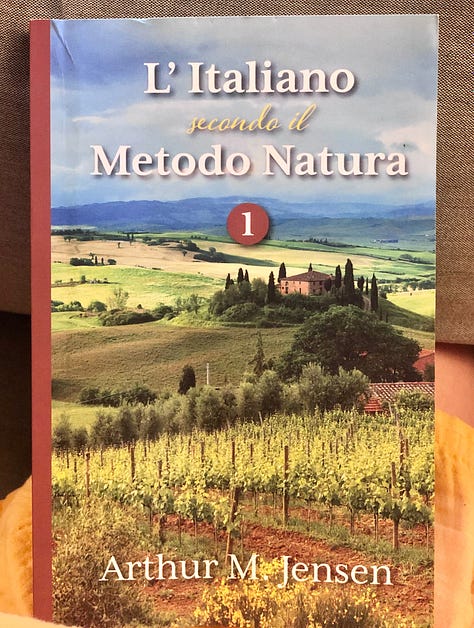

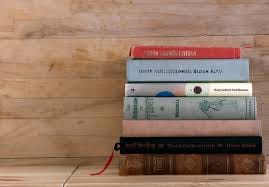

Reading (titles that were explicitly mentioned): That Hideous Strength by C.S. Lewis, M.R. James ghost stories, collection of poetry from Wislawa Szymborska, A Wrinkle in Time, Song of Achilles, The Well of Ascension, The Island of Sea Women, Book of Job and Acts, completion of ESV Bible, The Explicit Gospel, and Wendell Berry essays and short stories
Cutting down scraggly dead trees
Getting together with extended family for dinner
Reaching out to neighbours
Cooking new meals
Spending a lot more time gardening — from replanting gardenias and azeleas, tending lawns, building raised vegetable beds, and even tending new carnivorous plants
Making bread and granola
Looking up recipes in books rather than online
Knitting washcloths
Making replacement baby cover for high chair with self-made pattern
Mowing and taming 5 acres of noxious weeds
Short family walks after dinner
Long walks by the coast; long hikes along farmers fields
Presence, Quietness, Peace
Participants did not just relate creative and productive effects, but also shared that they experienced increased presence, quietness, and peace:
“Spending more time watching the sky view from my sitting room window. Enjoying the changing colours, as I sit with notebook and pen. It feels so relaxing compared with scrolling to discover what’s happening in the world, online…I’m already enjoying the gentle spaciousness that is opening up in my mind. It’s full of reflections and nuance, away from the polarised world delivered to me through my screens.” “Time spent alone in the true quiet of prayer during solitary walks or solitary yard work has brought me an unexpected amount of peace. Life is so much slower than I remember and for that I’m thankful.”Mary Anne “I felt like I had woken up and started to see the world beyond the screen, (that I actually inhabit!) instead of seeing everything through the lens of unreality that is the internet.”
“The most remarkable part of the detox was how liberating was the simple act of leaving my phone upstairs and out of sight. But I do feel more human…It feels exhilarating leaving the house without relying on a phone! Life is overall slower and more contemplative, which I also value so much being a young mom with little ones….I want to cherish this precious life!”Carisa “ One of the biggest lessons learned was being mindful of the desire to pick up the phone and questioning why.”

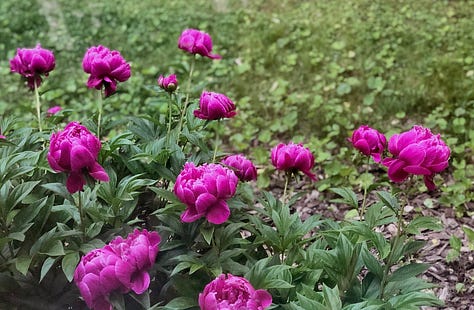
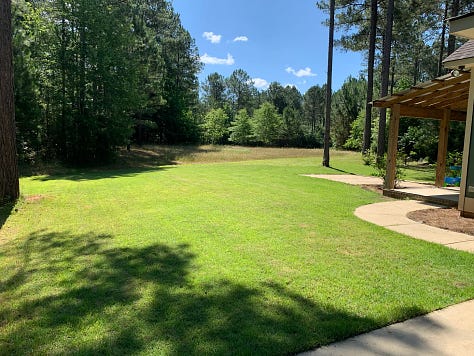
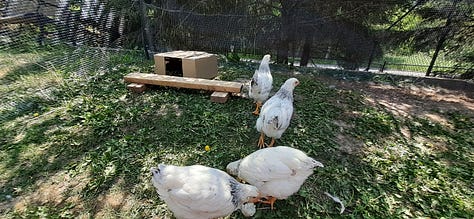
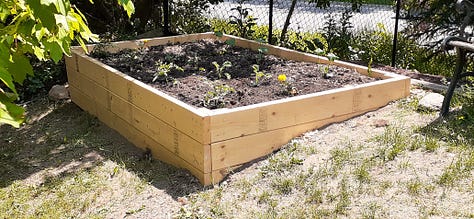

Every refugee, 99.9%, use their phone constantly. The place is a cacophony of phone chatter in at least a dozen languages. Without understanding Arabic, Spanish, or indigenous dialects, I heard desperate conversations between husbands and wives, shouted pleas of help, and warm, vibrant words between the traveler and his friends at home. I heard exclamations of pain, loneliness, worry, laughter, and hope….What changed for me was my appreciation of what our devices can offer - the connection and creative opportunities they provide for immigrants is important. These aspects don’t negate the dangers of cyberspace, but I have more nuanced, less binary understanding of the internet in a way I never imagined.
Going Forward
The digital detox brought along with it challenges, but it bore positive, liberating, and re-humanizing fruit. I know that I will not return to my previous usage patterns3, and many participants relate a similar conviction:
“Overall, this digital detox has been a wonderful stepping stone on a path I believe, in some ways, will last the rest of my life.” “I want the freedom to be more creative at every level, and not at the mercy of my scattered thoughts.” “I know that I don’t want to go back to what I was doing before, with unfettered social media use on my phone and all the frustrations that came with it…I have found so much joy and life in this challenge so far, despite it not going exactly as I planned. Living life intentionally and taking every moment to appreciate what God has given me is something that social media has taken from my life, and this month has taught me that I can have that fullness in my life again!” “This detox was the real first step toward chucking my “smart” phone and living free from its ghastly addiction.” “In the end, I’ll just keep this basic structure in place indefinitely…Too many good things pulling me forward, to spend much time getting sucked into the interruption and distraction machines.” “I think it's fair to say that my desire to unplug for a while gained a life of its own and I really didn't organize it or manage it so much as just completely surrender to it! I'm actually starting to wonder when I'll re-engage, but I'm not going to pressure myself about it. I'm living my life, and it is good. :)”Get Married
What all readers who participated in the digital detox had in common was a commitment to step outside the addictive grip of digital technology. Many had already taken steps before this “community effort”, but found the occasion useful to add increased determination and focus. Each person took a slightly different approach, from strictly outlined rules to general guidelines. All included the deletion of social media platforms. All participants related a positive experiences with regard to mental freedom, attention, increased presence, and greater peacefulness.
Unsurprisingly, almost everyone also experienced challenges in keeping to the newly set guidelines (myself included). One of the things that makes it hard, is that there is an utter absence of social support in minimizing or abstaining from digital device use. Their use now goes mostly unnoticed, unquestioned. People are breathing devices like air. I cannot think of another area of life that engages us so ubiquitously without any guiding structures in place. It is a free for all leading us to utter pixelation. Is this the air we want to breathe?
Abstinence has gained a negative connotation in the current culture, but it may be time to reclaim the freedom that abstinence offers in the digital realm. In order to be able to commit to a life of digital abstinence, we need to actually believe in the sacred nature of humanness. We are created to be free, to have free choice, to be creative, and to fulfill a purpose. As a Christian, my faith helps me in defining what keeps me human: loving God and loving others; the most basic commandment. This encapsulates my relationship to my Creator and other people, my natural environment, as well as my thoughts and actions. Anything that comes between me and this basic commandment is off limits, because it detracts me from being fully human.
You do not need to be a Christian for this argument to make sense. But I would suggest that in order to resist the dehumanizing effect of the Machine, it is necessary to draw a line. To create a frame around what defines our humanness. We need to fiercely protect these lines that the Machine continually tries to encroach upon. Yet, once the frame is defined, it is much easier to defend it. How can you protect something if you cannot even clearly see its defining contours?
‘s Pilgrim’s Creed, provides a solid foundation not only for anchoring our core meanings in life in the age of the Machine, but also a frame for technology’s role in our lives:Article 8 – I believe in cognitive liberty, which is the freedom to concentrate, reason, remember, feel, imagine, perceive, and use language, without manipulation or control by others or technology.
It was abundantly evident in readers’ experiences that limits effected freedom. The most natural analogy that came to my mind during the detox was marriage. Marriage provides a clear frame —we commit to one person, love, forgive, compromise, and grow together. This is life-giving.
If we approach digital minimalism as we do marriage, with full commitment, yet a willingness to forgive, we can resist the Machine in a more steadfast way. We may at times grow weak or slip, but we can remain fully committed. It is normal to go through struggles or difficulties, but it does not change our fundamental resolve.
Draw lines you can believe in. Commit to returning to what makes us essentially human, even if at times you fail. Reawaken to the the freedom of limits.
If you found this post helpful, consider supporting my work by ‘tiping’ a one-month subscription, or simply show your appreciation with a ‘like’ or a ‘share’.
A tremendous THANK YOU to all the readers who shared their experiences4! I hope that your words will help inspire others to follow in your footsteps from digital detox to digital minimalism.
Traditional Christian fast during Lent, when no food or water are consumed during the day and the fast is broken at sunset with a meal not containing meat, dairy, or eggs.
My children professed that I seemed much less distracted, more present, and less easily annoyed. My husband was grateful because I was less absorbed with online topics but more involved with our home and family. This had rippling effects onto every family member — everyone spent more time reading and creating, leading to an overall more peaceful, engaged environment. How could I give this up to appease trivial online temptations?
There was a reader who sent a response which got lost in a change of e-mail address. I tried to reach out via notes, but was not able to reconnect. If this was you, I would be happy to add your image of the coastal hike!













Thank you for your wisdom and linking to my essay, Ruth!
And your essay is abundant in community, humanness, ideas, and inspiration. As a person embracing sobriety from a number of things…and still recovering from others, I love this quote:
"Abstinence has gained a negative connotation in the current culture, but it may be time to reclaim the freedom that abstinence offers in the digital realm. In order to be able to commit to a life of digital abstinence, we need to actually believe in the sacred nature of humanness." Thank you!
Oh, what a cool collection of anecdotes! I didn’t do a formal digital detox in May. A lot of life stuff was going on: first, my husband had an infection that lasted about 3 weeks, which was miserable for him and cumulatively exhausting for me. This led to me driving alone with the girls to a city 3 hours away for their dance festival. Usually this would be a family road trip but my husband was on IV antibiotics and could not leave town. Now, I was thinking of my digital dependence: I made sure I printed maps out as well as using my phone GPS! (I could not find a printed map to buy: I tried). Anyway, all went well until about half an hour from destination, when the car broke down! Now obviously that was not fun, but the awesome part is we reconnected with an aunt of my husband’s I hadn’t seen in years, and whom the kids had never met since they were babies. The kindness of her and her husband turned a stressful experience for them into something joyful. And then there was all the other connectedness that happened as I told and retold my story and various people reached out to us to help haha. It was a reminder to my husband and I how important our networks are.
I think one of the insidious effects of technology is it feeds the fantasy that we don’t need other people, just our tools. This is so destructive, on so many levels. But it is tempting as it is very difficult and tiring to deal with people sometimes. But we all deep down want to live in a world where we have each other’s backs, as a wise friend of mine likes to say.
Long comment….maybe I will think a bit more about this and write my own blog!